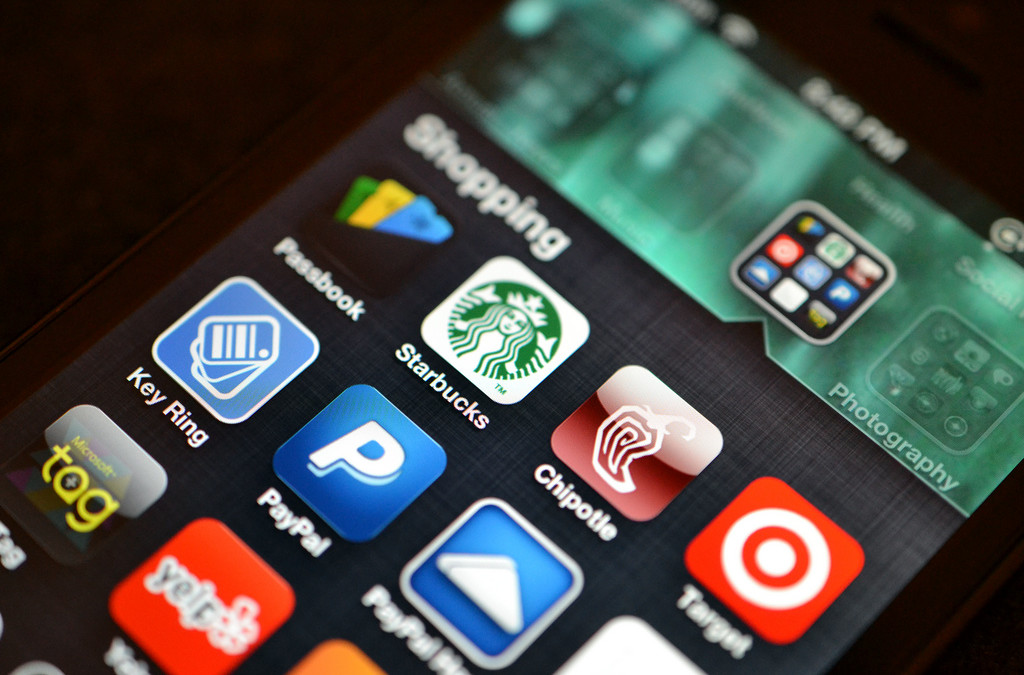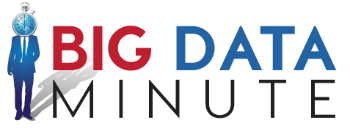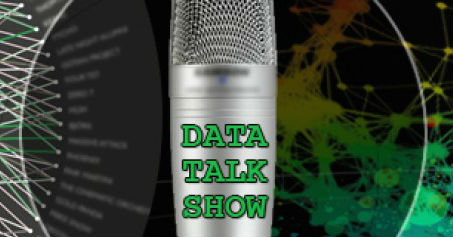
by Stephanie Rabinowotz | Nov 18, 2015 | Predictive Analytics
In light of last week’s tragic events in Paris and Beirut we begin to wonder how terrorists can get away with committing such horrible crimes and is there a way we can stop it? Is there a way to protect ourselves from terrorism other than using drones to bomb whole cities? Could we track these awful people and arrest them before any of their plans can be carried out?
Big Data may not be the first thing that comes to mind when thinking about defending our country’s safety. but it may be more important than we think. We must remember that Big Data is essentially a lot of information- information on all of us. We are the ones who put our information out there for the world to see. We may not think anything of posting on Facebook about our vacation travels or what big event we are attending, but to the sick minded people out there we are basically telling them where and when we will be somewhere they can best attack.
Many people get angry about the fact that the government is tracking their information, but really it is for our own protection. The government is not listening in on your call for entertainment, they are using machines to scan the information our there across the internet for patterns that may detect a possible dangerous outbreak. Whether it be the spread of disease or an angry protest group, the government is searching for clues to predict when these acts may happen and how to best prevent the worst from happening.
What if Big Data could help us spot terrorists living in our country before they could attack. There must be a way to find the connections the link individuals to terrorist groups. This would allow homeland security to track down these individuals and get them into custody before any damage is done. To be able to shut down terrorist groups before they even act would be the best way to prevent terrorism, not by bombing cities that are also home to innocent people.
As for now we can only hope that the information we put out there is being used for good and that the government is using Big Data to its fullest potential to prevent distastes from happening. Check out other articles on Big Data and Security by CLICKING HERE!

by Stephanie Rabinowotz | Nov 13, 2015 | Business Optimization, Customer Satisfaction
Pinterest is most commonly known as an app for DIY, stay at home moms who have it all together. Although there is some validity to that assumption, Pinterest is a wonderful tool anyone can use to find answers to almost any question. I personally use Pinterest like I would use Google; anything I need to know I look to Pinterest to find, because I trust its resources and know that the remedies have been tried and tested in real world scenarios.
With more and more people turning to Pinterest for information, it is becoming a popular site for business marketing. Companies can hide adds in pins that look like they came from the trusted neighborly mom. Pinterest is enhancing the ability for companies to market their products by enhancing their search engine through Big Data analytics. Pinterest has always utilized Big Data to recommended pins based on personal preference and habit, but not they are taking it to a whole other level.
Pinterest is using machine learning techniques to turn pictures into quantifiable data that can aid in more customized searches. Now when a user looks at a picture of an outfit and they particularly like the boots in that picture, they can click solely on the boots. By clicking this one section of the picture they will be redirected to thousands of other pins that feature those boots- who they were designed by, where can you by them, and customer reviews. This is an amazing new invention in technology and is not only going to make online shopping ten times more efficient and accessible, but help businesses market their products in real world scenarios.
People are much more likely to buy a pillow they see on a trendy couch in a well designed living room rather than that same pillow by itself up against a blank backdrop. Consumers want to see what the product is going to look like when they bring it home. This is also a great way for companies to allow their customers to market for them. When a girl pins a picture of her outfit, she will now be marketing for each piece of clothing she is displaying. Anyone can click on her sweater or hat and instant access where to purchase it. This is going to save companies a lot of money and time on marketing if they learn how to use Pinterest to their benefit.

by Tara Buck | Nov 11, 2015 | Big Data, Project Management
You can pretty much look anywhere on the internet today and find an article, post, or book written on the benefits of Big Data. It is on the mind of every executive out there, and rightfully so. While the benefits do greatly outweigh the downsides, it still needs to be brought to attention that there often remains a weak link in big data- the data itself.
Without good data, the business intelligence gained from it can all be deemed useless. Without good data, companies find themselves spending unnecessary time and money in an attempt to clean it up. So, rather than focusing right now on how much data we could possibly gather, shouldn’t we be focusing on how to retrieve the ‘correct’ data?
Annual BI and Big Data expenditures are expected to reach $114 billion by the end of 2018- not a number to be taken lightly! It is estimated that almost $65 Billion of that is absorbed or unrealized by businesses each year due to return mail/bad data. Poor data is prevalent in nearly every major industry, from healthcare to retail and finance to telecommunications.
USPS gave us a perfect example of how crucial good data is when they incurred $1.5 Billion in costs processing “undeliverable as addressed” mail. While there were many other factors, over half a billion dollars in expense was due to businesses having wrong addresses in their databases.
Organizations can continue to go along as many are today, gathering all of the data they can get their hands on, because somewhere within that, the good data will fall. However, in an age of efficiency and desire to save as much time and money as possible, executives should drive their organizations to ensure data is properly entered from the beginning or corrected within the systems and databases. Thankfully, there are many products already on the market that can help companies with this today.
After getting rid of the crud in the data and spending our time retrieving only what matters, we will begin to see Big Data being used to its fullest potential. Oh, the possibilities!

by Stephanie Rabinowotz | Nov 9, 2015 | Customer Satisfaction, Data Science
This is a great article written by a colleague of mine about the effects big data is having on the insurance industry. With something as personal as insurance, customers want to feel that they are getting coverage that has been custom made specifically for their needs. No one wants to feel like they are over paying for a plan that they have been lumped into with complete strangers. See how big data is allowing insurance companies to treat their customers more individually and create coverage plans to fit any lifestyle!
Big Data in the Insurance Industry
Virtually every industry has found a way to put Big Data and data analytics to use. What are the industries that are utilizing the benefits of the data revolution? Education, manufacturing, retail, healthcare, telecommunications, and more. Really there is not an industry that can’t benefit from analytics.
Today, we will be talking about analytics in the insurance industry. Technology in this industry is booming. So what areas are being impacted the most?
Personalization
Similarly to many other industries, real-time data leads to a more personalized customer experience. Customers are more likely to feel as though they are being fairly treated and assessed, as individuals. They are no longer at the mercy of generalizations. This provides a more positive experience for them, making them more likely to remain loyal customers.
This also provides a more accurate risk assessment for the insurance companies. They, too are no longer at the mercy of generalizations.
Underwriting
Underwriters are also no longer at the mercy of generalizations. Through real-time data mining, they can better evaluate an individual, to match him or her with the best policy. They can also provide more accurate pricing based on the data assessments.
Fraud Risk
Unfortunately, fraudulent claims are rather common. But data mining and predictive analytics are starting to change that. Not only can they better evaluate the initial risk of fraud, but after a claim is made, they can track digital and social channels for evidence of fraudulent behavior.
Reducing Cancelation
Similarly to many other industries, advanced analytics greatly improve customer retention. In the insurance world, they leverage data to identify risk of impending cancellations. This way that can take preventative measures, and address unhappy customers.
They can even seek out more loyal consumers. Insurance companies are using predictive analytics to help them choose long-term clients. Because everyone knows that retaining customers is cheaper than getting new ones.
Relationships With Customers
This has clearly been brought up over and over again. And its an area where every single business or organization can improve; data analytics are the most effective way to improve customer experiences.
The insights from data analytics can be used to identify lifestyles, customer preferences, and characteristics. If employees that interact with customers have access to this data, then they can act on this. The data allows them to truly get to know the customers. By identifying with the customers, they are more interested in providing a positive experience for them. Simultaneously the customer really appreciates the personalized experience.

by Stephanie Rabinowotz | Nov 6, 2015 | Customer Satisfaction
Today’s culture is all about instant gratification. If we can’t get our Starbucks in a drive through or if our SnapChat won’t download we feel hugely inconvenienced. With these types of expectations, our generation is accustomed to getting everything we want and getting it now. Even though this seems like a very selfish way to live (and sometimes it definitely is), companies are wising up to these expectations and accommodating to them.
Think about Amazon, they offer Amazon Prime so that you can get packages delivered within 2 days as opposed to an indefinite 3-5 days. Not only are they making shipping quicker, but they now track your purchases so they can better advertise to you what you may need… making your shopping experience much faster. Rather than having to search the internet, the internet seems to know you. All you have to do is type half a word into a Google search and magically it knows what you are trying to look for.
This is all because of Big Data. Big Data is what tracks us; everything about us is being recorded and sent to companies now. Talk about being stalked. But this is being stalked in a good way, at least according to our culture. We like having everything at our finger tips, less work = better. In one sense it is sad to see our work ethic dive bombing, but our world is also becoming more efficient. The use of Big Data is allowing everything to become faster and more accurate.
A great example of this is Pandora. Pandora studies what songs we like and dislike and uses that information to put together playlists that seem meant for our individual music tastes. It is much more convenient to listen to a radio station that only plays our favorite songs. This way we get to listen to great music without wasting time searching for the next song or listening to our own homemade playlist on repeat. This is the type of business that will go far with our current culture, the type that caters to individuals in a fast and easy manner.
Not only is Big Data saving people time, it is making companies a lot of money. Companies that play into the instant gratification game are rising to success with the use of Big Data. By understanding their customers and knowing how to give them what they want as fast as possible, businesses are excelling.











Recent Comments